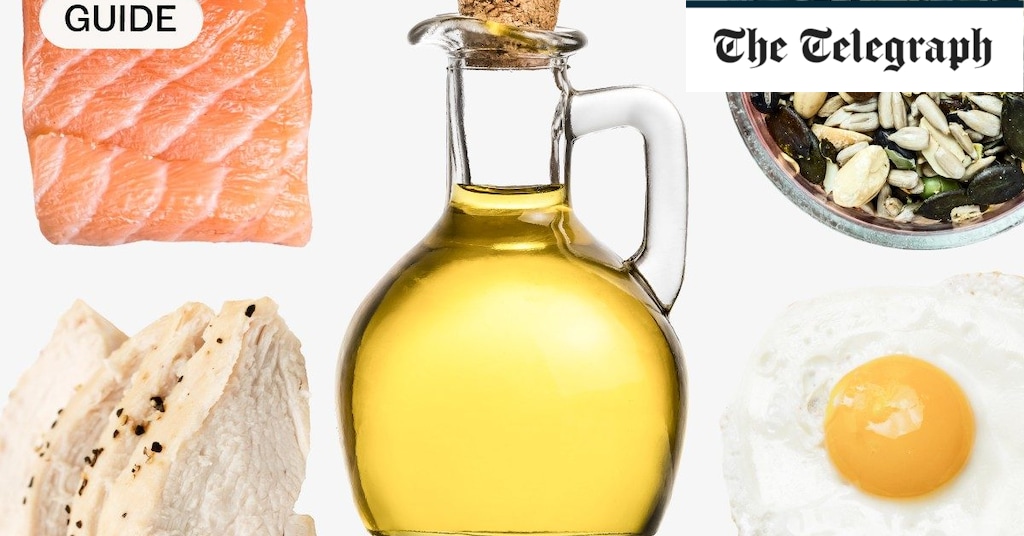The Paleo diet is one of the most popular diets in the world. Also known as the Caveman or Stone Age diet, it is based on the food consumed by our forebears in the Paleolithic period, which dates from 2.5 million to 10,000 years ago.
“A simple guideline for the Paleo diet is, if it looks like it was made in a factory, avoid it,” says Natalie Burrows, a registered nutritional therapist .
Recommended foods to eat include lean meats, fish, fruits, vegetables, nuts and seeds — foods that in the past could be obtained by hunting and gathering. Apart from appealing to people wanting to lose weight, it’s particularly popular with Gen Z and fitness buffs. “Gym-goers tend to be drawn to the Paleo diet due to the high amounts of muscle-building protein,” says Bini Sureshbabu, a registered dietitian at the Cleveland Clinic.
With more than 25,000 average monthly searches for it in 2023, increasing numbers have turned to it in the UK. But is it really good for your health?
Jump to:
A 2019 study found that the Paleolithic diet may assist in controlling weight and waistlines and in the management of chronic diseases. Other studies have suggested that the Paleo diet may provide some benefits in the prevention of metabolic syndrome, Type 2 diabetes, cardiovascular diseases and cancer.
“If you’re looking to eat healthier and lose weight, the Paleo diet might be advantageous. It does encourage more fruit and vegetables, nuts and seeds and foods that we currently don’t eat enough of,” says Tracy Parker, a registered dietitian for the British Heart Foundation. However, she adds, “There’s not enough research to support the premise of the diet preventing chronic disease.”
“Focusing on whole foods is not a bad thing and nor is the removal of processed sugary foods. From a health perspective, many people would feel better adopting these principles,” Burrows explains.
Our busy lifestyles mean that more of the foods we choose are processed – and cutting these out is a positive thing for our health. “These foods have lots of added ingredients: salt, sugar, saturated fat and palm oil, the types of foods and additives that have an implication for our blood cholesterol level, blood pressure and weight, increasing our risk factor for Type 2 diabetes,” says Parker.
The Paleo diet can provide a wide range of benefits for people with diabetes, including weight loss through lower carbohydrate and sugar intake, as well as increased insulin sensitivity. Studies have suggested the Paleolithic diet is associated with lower levels of systemic inflammation. “There’s not enough research to suggest it’s anti-inflammatory, but people who have autoimmune diseases and other conditions linked to inflammation might consider trying it,” notes Sureshbabu – as long as it’s under the advice of a healthcare professional or dietitian.
Back to index
“I wouldn’t call the Paleo diet ‘healthy’ because it is somewhat restrictive and as a dietitian, I recommend being able to have a little bit of everything,” Sureshbabu says. Eliminating food groups can create a risk of developing eating disorders.
Our Paleolithic ancestors basically ate whatever was in their surroundings and in eliminating foods that had been introduced through farming over the years – dairy products, beans, grains and cereals – you’re cutting out foods that have many health benefits.
“The main health risk I would associate with a Paleo diet is nutrient deficiency,” Sureshbabu continues. “If you’re eliminating food groups like grains, dairy and legumes, these provide essential nutrients, like vitamin D, fibre, calcium and minerals.” Wholegrains are packed with fibre, B vitamins and folic acid, antioxidants and micronutrients, so they reduce the risk of cancers, heart disease, stroke and Type 2 diabetes as well as being important fuel for brain and muscle function. And cutting out dairy can compromise bone health. “This means you’re at increased risk of osteoporosis or bone fractures,” says Parker.
Furthermore, the diet relies heavily on high-quality organic foods and fresh fruits and vegetables, which can make it expensive to follow. It also requires a lot of planning in order to ensure you’re getting all the right nutrients in your diet.
Back to index

